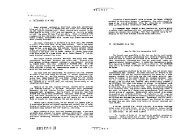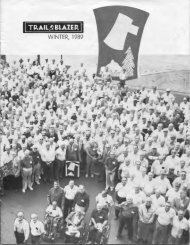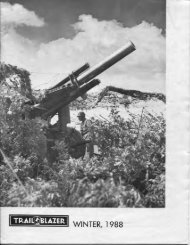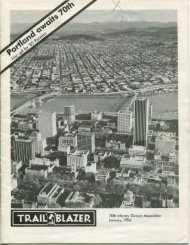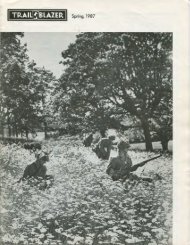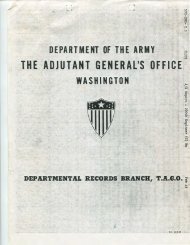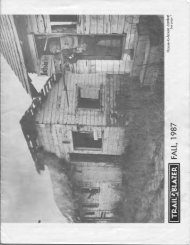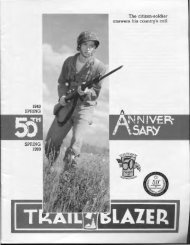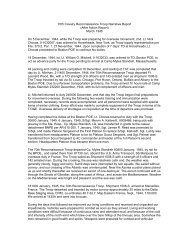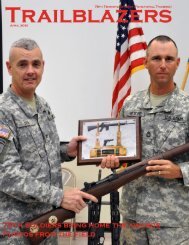Download - 70th Infantry Division Association
Download - 70th Infantry Division Association
Download - 70th Infantry Division Association
You also want an ePaper? Increase the reach of your titles
YUMPU automatically turns print PDFs into web optimized ePapers that Google loves.
Mines were encountered by all forward units. Several vehicles were lost to anti-tank mines and several<br />
casualties were caused by Schu Mines. The Company Commander of 2d Battalion Headquarters<br />
Company was wounded while guiding a vehicle through a mine field when the vehicle ran over an antitank<br />
mine.<br />
All units continued to move during the morning and afternoon of the 14th of March. The attached French<br />
troops were sent to Petite Rosselle to occupy that town. The Regimental CP moved to Forbach. By 1530<br />
the 1st Battalion was in Furstenhausen and sent out patrols to the bank of the river. Elements of the 2d<br />
Battalion were in Klarenthal and G Company sent out a patrol along the main road to the Saar meeting<br />
some resistance. The 3d Battalion held up at Petite Rosselle as Regimental Reserve. Patrols observed<br />
enemy on the north bank of the river, also, pill boxes and elaborate trench systems.<br />
Small pockets of enemy which had been by-passed were cleared out. Approximately 50 prisoners were<br />
taken.<br />
By evening, we controlled all the high ground south of the Saar in our sector. The 101st Cavalry on our<br />
left and the 274th Regiment on our right also occupied positions on the south bank of the river.<br />
We patrolled continually, probing for a likely crossing point, and marking enemy positions across the river.<br />
During the night the Engineers cleared road blocks and mines on the road to Klarenthal. We were still<br />
receiving small arms fire on the south bank of the river, mainly from several houses. Company G patrols<br />
maintained contact with the 274th Regiment on our right and contact was made with the 101st Cavalry on<br />
our left early on the morning of 15 March.<br />
Throughout the day all units except the 3d Battalion cleared out the enemy on the south bank of the Saar<br />
and patrolled along the bank of our Regimental sector. The 3d Battalion, in Regimental Reserve, was<br />
ordered to get as much rest as possible and to post only local security.<br />
The forward elements continued to receive heavy fire, both mortar and artillery, during the night.<br />
Observers heard trains moving in the town of Volkingen across the river and boats were heard on the<br />
river.<br />
The following morning found our patrols looking for suitable crossings. Ferryboat landings were found to<br />
be demolished by artillery, and a tunnel under the river was located and found to be heavily mined.<br />
Anytime one of our men exposed himself, he drew fire from the pill boxes and emplacements on the north<br />
side of the river.<br />
On March 15, Joe Strauss was assigned to duty from the hospital. We had four enlisted men missing,<br />
wounded or killed in action. The company continued to attack from position one mile north of Kleinrossel,<br />
France to Klarenthal, Germany. We were moving into Germany. We were holding defensive position in<br />
Klarenthal. So the day we moved into Germany, I got a promotion. I never knew that until just now,<br />
because I never knew where I was half the time when I was over there.<br />
The Regimental CP moved from Forbach to Petite Rosselle on the afternoon of the 16th of March.<br />
During the night patrols from the 1st and 3d Battalions attempted to cross the river by boat with the<br />
assistance of the Engineers. Each Battalion picked its own points for crossing.<br />
It was planned that in the event a crossing was successfully made and the patrols could establish a<br />
beachhead, the Battalions would cross in force.<br />
Before the patrols were actually on their way, we were notified by <strong>Division</strong> to extend our left sector to<br />
include the sector of the 101st Cavalry which was being withdrawn. Company B was ordered to move to<br />
the new sector to relieve the 101st and establish outposts. Company A took over the positions vacated by<br />
Company B. However, Company A did send out a patrol to attempt a river crossing.



